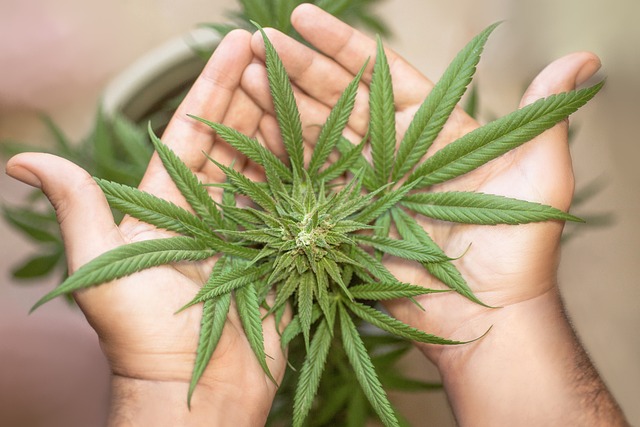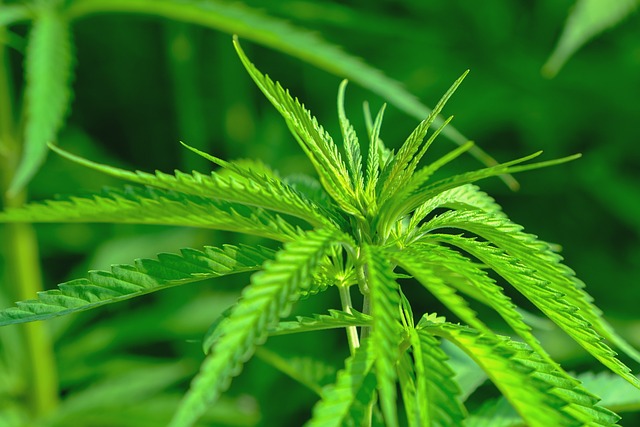As of 2023, Delta 9 gummies are a widely used and legally sanctioned form of cannabis consumption for adults over 21 in Maine, with up to 2.5 ounces allowed for personal use. These edibles are subject to strict safety and potency testing when purchased from licensed retailers or dispensaries within the state. Maine's regulatory framework is designed to ensure quality control and consumer protection in the cannabis industry, but it's crucial to remember that Delta 9 THC gummies are under federal scrutiny due to cannabis being a Schedule I substance. This dual-jurisdiction status has significant implications for interstate travel and certain transactions, necessitating careful compliance with both state and federal laws.
Delta 9 THC gummies offer both recreational and therapeutic benefits, with effects including euphoria, relaxation, pain relief, and stress reduction. The onset of these effects can take anywhere from 30 minutes to 2 hours after consumption. For medical patients in Maine, these gummies are a controlled way to manage chronic conditions such as chronic pain and anxiety, thanks to precise dosing that helps prevent overconsumption. Users should be mindful of potential side effects like impaired coordination and altered judgment, and those with pre-existing health conditions or sensitivity to THC should exercise extra caution. Regular use may have implications for mental health, particularly in individuals at risk for psychotic disorders. It's important to consume delta 9 THC gummies responsibly within one's personal tolerance level and to stay informed about their benefits and risks as regulated by Maine state laws. Users should educate themselves fully on these products to make informed decisions regarding their use, considering them a part of a wellness routine with the guidance of healthcare professionals.
Delta 9 gummies have emerged as a popular choice for those seeking the therapeutic and recreational benefits of cannabis in a convenient, tasty format. As these edibles become more accessible within the state’s regulated market, understanding their legal status, effects, and potential risks is crucial for Maine residents and visitors alike. This article delves into the pros and cons of Delta 9 gummies, providing a comprehensive guide to help you navigate their use in compliance with Maine’s laws. From the enjoyable experience they offer to the considerations necessary to ensure safe consumption, discover how these cannabinoid-infused treats fit within your wellness routine without overstepping into uncharted territory.
- Delta 9 Gummies in Maine: A Legal Guide to Cannabis Edibles
- Experiencing Delta 9: Effects and Benefits of Delta 9 THC Gummies
- Understanding the Risks and Drawbacks of Delta 9 THC Gummies
- Balancing Benefits and Risks: Is Delta 9 Right for Your Wellness Routine in Maine?
Delta 9 Gummies in Maine: A Legal Guide to Cannabis Edibles

Delta 9 gummies have become a popular consumption method for cannabis users in Maine, where their use is regulated under state law. As of the knowledge cutoff in 2023, residents can legally purchase and possess these edibles if they adhere to the state’s guidelines. Maine’s recreational cannabis law allows adults aged 21 and over to have up to 2.5 ounces of cannabis in usable form, which includes gummies, on their person. The state has established a legal framework for the sale and distribution of these products, ensuring that they are tested for safety and potency. Consumers must be cautious when purchasing delta 9 gummies to ensure they come from a licensed retailer or dispensary to avoid potential health risks associated with unregulated products. Maine’s regulatory body oversees the cannabis industry, including the production of edibles, to maintain quality control and consumer protection standards. Users should be aware that while delta 9 THC gummies are legal in Maine, federal law still categorizes cannabis as a Schedule I substance, which may affect interstate travel and certain transactions. Therefore, it is crucial for users to stay informed about the evolving legal landscape surrounding cannabis edibles to ensure compliance with both state and federal regulations.
Experiencing Delta 9: Effects and Benefits of Delta 9 THC Gummies

Delta 9 tetrahydrocannabinol (THC) gummies have become a popular choice among adults in Maine who are looking for the effects of cannabis in a discreet, convenient form. These gummies contain Delta 9 THC, the primary psychoactive component of cannabis, which is legal in Maine when obtained from licensed dispensaries or stores. Upon consumption, individuals may experience a range of effects, often characterized by a sense of euphoria, relaxation, and altered perception. The onset of these effects can vary depending on factors like dosage, metabolism, and individual physiology, but users typically feel the impact within 30 minutes to 2 hours. The psychoactive properties of Delta 9 THC gummies can enhance mood, reduce stress, and provide pain relief for some users. Additionally, they may stimulate appetite and help with sleep disturbances.
The benefits of Delta 9 THC gummies extend beyond their recreational use; they also offer therapeutic potential. In Maine, where the use of medical marijuana is widely supported, these gummies can be a viable option for patients with qualifying conditions. They provide a precise dosing method that allows for controlled consumption, which is crucial for both novice and experienced users to avoid overconsumption. The gummies’ long-lasting effects make them suitable for managing chronic pain, anxiety, and other medical conditions throughout the day. However, it is important for users to be aware of the potential side effects, such as impaired motor skills, altered judgment, and increased heart rate. As with any cannabis product, it is recommended that users start with a low dose and wait to assess their response before increasing their intake. Legal frameworks like those in Maine ensure that consumers have access to regulated products, contributing to a safer experience for those choosing Delta 9 THC gummies for their effects and potential benefits.
Understanding the Risks and Drawbacks of Delta 9 THC Gummies

When considering the consumption of delta 9 THC gummies, it’s crucial to have a comprehensive understanding of both the benefits and potential drawbacks. While delta 9 THC is legal in Maine, aligning with state and federal regulations, it’s important to approach its use with caution due to its psychoactive properties. One significant risk associated with delta 9 gummies is their potency, which can vary between products; this can lead to unintended high doses if one ingests more than the recommended amount. This variability in potency can be attributed to factors such as individual body chemistry and varying product formulations.
Another drawback is the possibility of adverse reactions, particularly for those with pre-existing health conditions or who may be sensitive to THC. Side effects can range from mild discomfort, such as dizziness or anxiety, to more severe outcomes if an overdose occurs. Additionally, delta 9 gummies can impair cognitive functions and motor skills, which can be hazardous in situations requiring attention or coordination. It’s also worth mentioning that regular use of delta 9 THC may lead to long-term effects on mental health, including but not limited to, increased risk of psychotic disorders in susceptible individuals. Therefore, while delta 9 gummies are legal in Maine and can be a part of one’s wellness regimen when used responsibly, it’s essential to consume them with a clear understanding of the potential risks and to do so within the boundaries set by personal tolerance and legal limitations.
Balancing Benefits and Risks: Is Delta 9 Right for Your Wellness Routine in Maine?

Delta 9 tetrahydrocannabinol (THC) gummies have emerged as a popular consumption method for those seeking the potential wellness benefits of cannabis in a legal and convenient form. With the legal status of delta 9 THC clarified in Maine, residents can consider incorporating these gummies into their wellness routines. However, it’s crucial to weigh the pros and cons carefully before doing so. The therapeutic advantages of delta 9 THC gummies, such as pain relief, anxiety reduction, and improved sleep, have been reported by many users. Maine’s regulatory framework ensures that these products are tested for safety and potency, providing consumers with a degree of certainty about the effects they can expect. On the other hand, potential risks associated with delta 9 THC use include psychoactive effects, which may impair cognitive functions and lead to adverse reactions in sensitive individuals or those with pre-existing conditions. Additionally, there is the matter of dosage control, as consuming too much can result in unwanted side effects. Balancing the benefits and risks of delta 9 THC gummies requires a responsible approach to usage, an understanding of one’s own health condition, and adherence to Maine’s legal guidelines for cannabis products. Consumers should always start with low doses and consult with healthcare professionals if they have any concerns or questions about how delta 9 THC might fit into their wellness routine.
Delta 9 THC gummies have carved out a niche in Maine’s legal cannabis landscape, offering both therapeutic benefits and recreational enjoyment. Users report a range of effects from Delta 9 gummies, often praising them for their potent psychoactive properties and long-lasting relief they can provide. However, it’s crucial to approach these products with caution, as they come with potential health risks and legal considerations. The key to safely incorporating Delta 9 THC gummies into one’s wellness routine lies in understanding both sides of the coin—their benefits and their drawbacks. For those in Maine where Delta 9 is legal, this knowledge empowers consumers to make informed decisions that align with their individual health needs and local regulations. In conclusion, while Delta 9 THC gummies may offer significant advantages for certain individuals, it’s imperative to weigh these against the potential risks and to use them responsibly within the framework of Maine’s legal guidelines.
